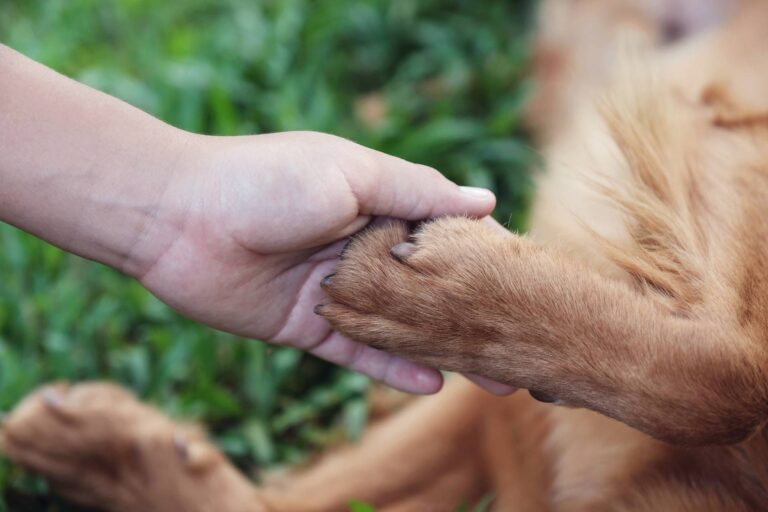Discover 8 Unique Characteristics of Popular Dog Breeds
Introduction
Choosing a dog involves more than just picking a cute face. Each dog breed comes with its own set of characteristics and traits that make it unique. Understanding these differences is crucial for finding a breed that fits seamlessly into your lifestyle and meets your expectations. In this post, we’ll explore the distinct features of various dog breeds, helping you make an informed decision about your next canine companion.
Understanding Breed Traits and Characteristics
When evaluating dog breeds, it’s essential to understand the various traits and characteristics that define each breed. These traits can significantly impact how a dog fits into your home and life. Here’s a comprehensive breakdown of key traits to consider:

1. Size of Dog Breeds
The size of a dog can affect many aspects of its care and compatibility with your living space. Breeds vary from tiny teacup dogs to large, majestic giants. For a full guide on dog breed sizes, the AKC breed size guide is an excellent resource.
- Small Breeds: Small dogs, such as Chihuahuas and Pomeranians, are well-suited for apartment living due to their compact size. They generally require less space and can adapt to a smaller environment.
- Medium Breeds: Medium-sized dogs, like Beagles and Cocker Spaniels, are versatile and can thrive in various living situations, including both apartments and houses with yards.
- Large Breeds: Large dogs, such as Golden Retrievers and Great Danes, need ample space to move around and may be better suited for homes with larger yards. They often require more exercise and space.
2. Temperament of Dog Breeds
A dog’s temperament greatly influences its suitability for different environments and families. Some breeds are naturally more reserved, while others are outgoing and sociable. For an in-depth analysis of each breed’s temperament, you can refer to the American Veterinary Medical Association for research-backed insights.
- Friendly and Sociable Breeds: Breeds like the Labrador Retriever and the Beagle are known for their friendly and approachable nature. They typically get along well with children and other pets.
- Independent Breeds: Breeds such as the Afghan Hound and the Basenji may have a more aloof or independent demeanor. They might require more patience and training to bond with their owners.
3. Energy Level and Exercise Needs
The energy level of a dog determines how much physical activity and mental stimulation it requires. If you’re interested in high-energy breeds, the PetMD guide to active dog breeds will provide additional information.
- High-Energy Breeds: Working breeds like the Border Collie and the Siberian Husky are known for their high energy levels. They require regular exercise and mental challenges to stay happy and healthy.
- Low-Energy Breeds: Breeds like the Bulldog and the Basset Hound are more laid-back and may be content with shorter walks and less rigorous activity.
4. Grooming and Maintenance
Grooming needs vary between breeds and can impact your daily routine and overall care of the dog.
- High-Grooming Breeds: Long-haired breeds such as the Shih Tzu and the Afghan Hound require regular grooming to keep their coats healthy and free of tangles.
- Low-Grooming Breeds: Short-haired breeds like the Boxer and the Beagle require minimal grooming and are generally easier to maintain.

What Type of Dog Breed Best Matches Your Lifestyle?
Choosing the right breed involves aligning the dog’s characteristics with your lifestyle. Here are some common breed types and examples to help you make an informed choice:
1. Popular Dog Breeds
Popular breeds are known for their versatility and wide appeal. They often excel in various roles, from family companions to working dogs.
- Labrador Retriever: Known for its friendly and outgoing nature, the Labrador is a favorite family dog and is also used as a service dog.
- Golden Retriever: Praised for its gentle and patient demeanor, the Golden Retriever is excellent with children and makes a great family pet.
2. Small Breeds
Small breeds are perfect for individuals or families living in smaller spaces. They often require less exercise but still offer great companionship.
- Chihuahua: This tiny breed is known for its big personality and adaptability to apartment living.
- French Bulldog: With its playful and affectionate nature, the French Bulldog is well-suited for city living and smaller homes.
3. Working Breeds
Working breeds are intelligent and energetic, often used for specific tasks or roles. They thrive in environments where they have a job to do.
- Border Collie: Known for its herding skills and intelligence, the Border Collie is ideal for active families or individuals who can provide plenty of exercise and mental stimulation.
- German Shepherd: Highly trainable and versatile, the German Shepherd is used in various roles, including police and search-and-rescue work.
4. Friendly Breeds
Friendly breeds are known for their sociable and affectionate nature, making them great companions for families and individuals alike.
- Cavalier King Charles Spaniel: This breed is known for its loving and gentle temperament, making it an excellent choice for families with children.
- Beagle: With its friendly and curious nature, the Beagle is a great family pet that gets along well with children and other animals.
5. Hypoallergenic Breeds
For individuals with allergies, hypoallergenic breeds can be a suitable option. These breeds produce fewer allergens and are less likely to trigger allergic reactions.
- Poodle: Available in various sizes (Toy, Miniature, and Standard), the Poodle has a curly coat that produces fewer allergens.
- Bichon Frise: This small breed has a curly, non-shedding coat, making it a good choice for allergy sufferers.

How to Choose the Right Dog Breed for Your Lifestyle
Selecting the right breed involves matching a dog’s characteristics with your personal lifestyle. Here are some factors to consider:
1. Living Space
Consider the size of your living space when choosing a breed.
- Apartment Living: Smaller breeds or low-energy dogs may be better suited for apartment living. Breeds like the French Bulldog and the Pug adapt well to smaller spaces.
- House with a Yard: Larger breeds and high-energy dogs often need more space to roam and play. Breeds like the Labrador Retriever and the Golden Retriever thrive in homes with yards.
2. Activity Level
Match your activity level with the dog’s needs.
- Active Lifestyles: If you enjoy outdoor activities and exercise, consider breeds with high energy levels, such as the Border Collie or the Siberian Husky.
- Less Active Lifestyles: If you prefer a more relaxed lifestyle, a breed with lower exercise needs, such as the Bulldog or the Shih Tzu, might be a better fit.
3. Family Dynamics
Think about how the dog will fit into your family life.
- Families with Young Children: Friendly and patient breeds like the Golden Retriever or the Beagle are great choices for families with young children.
- Single Individuals or Couples: Breeds that require less attention and exercise, such as the French Bulldog or the Pomeranian, can be ideal for individuals or couples with busy schedules.

Frequently Asked Questions About Dog Breeds
Q1: What are the best dog breeds for families with children?
- Breeds like the Golden Retriever, Labrador Retriever, and Beagle are known for their friendly and patient nature, making them great for families with children.
Q2: Which dog breeds are best suited for apartment living?
- Small breeds like the Chihuahua, French Bulldog, and Pomeranian are well-suited for apartment living due to their compact size and lower exercise needs.
Q3: What are the most intelligent dog breeds?
- A: Border Collies, Poodles, and German Shepherds are among the most intelligent dog breeds, known for their trainability and problem-solving skills.
Q4: How do I choose a dog breed that fits my lifestyle?
Consider factors such as your living space, activity level, and family dynamics. Choose a breed whose characteristics align with your daily routine and preferences.
Q5: Are there hypoallergenic dog breeds?
- Yes, breeds like the Poodle and the Bichon Frise are considered hypoallergenic and produce fewer allergens, making them suitable for individuals with allergies.
Conclusion: Finding Your Perfect Canine Companion
Choosing the right dog breed is a significant decision that requires careful consideration of various factors, from size and temperament to lifestyle compatibility. By understanding what makes each breed unique and how these traits align with your life, you can find a loyal and loving companion that will bring joy to your home. Remember, the perfect breed is one that not only fits your lifestyle but also enhances your life and strengthens the bond between you and your new furry friend.




